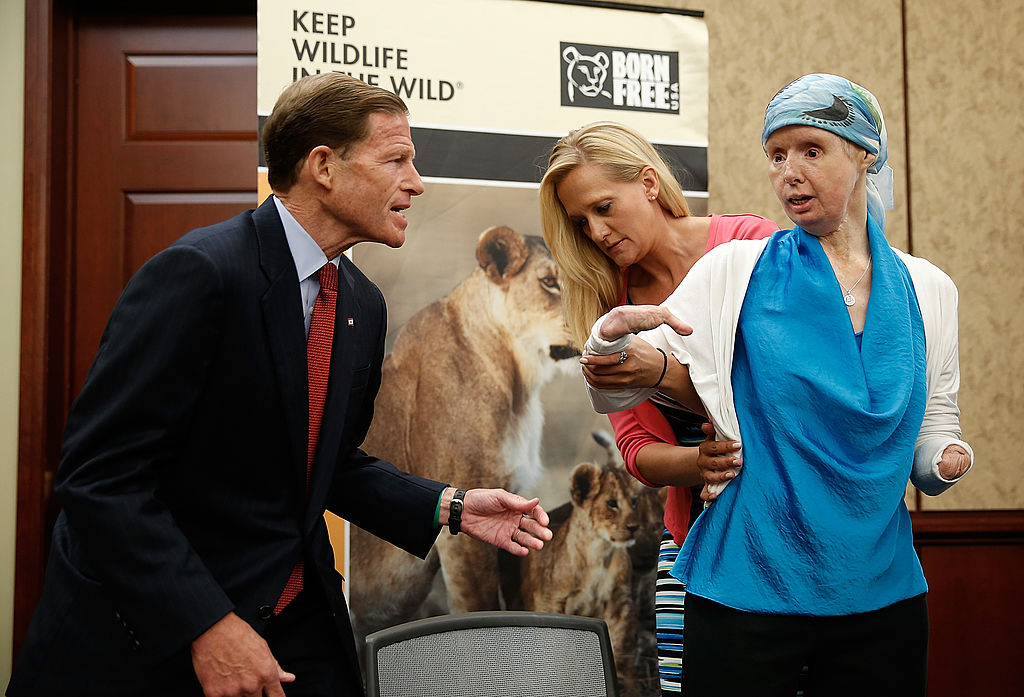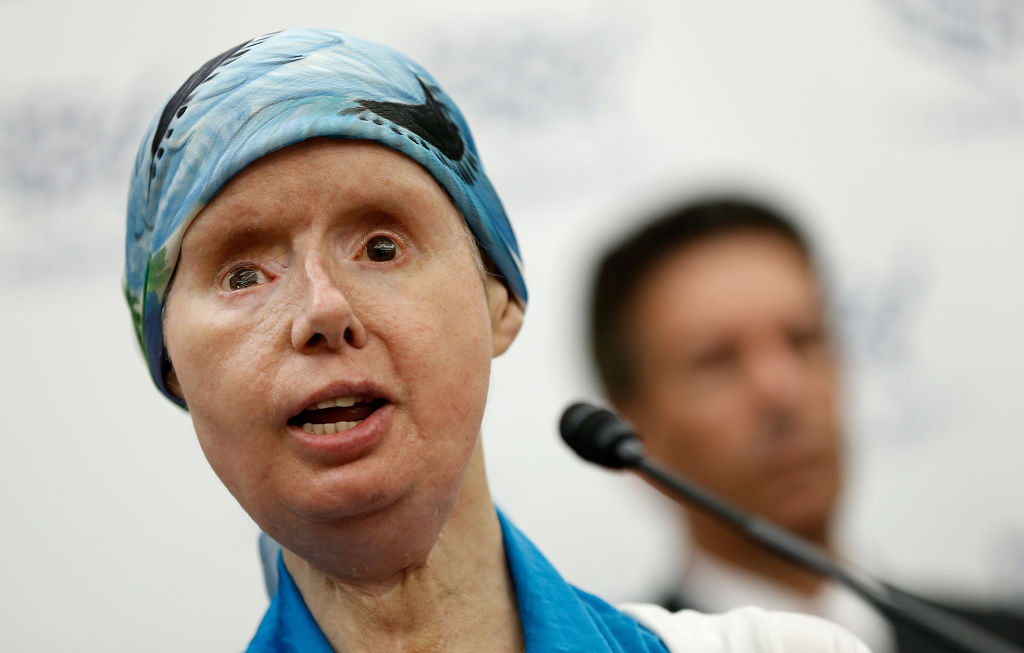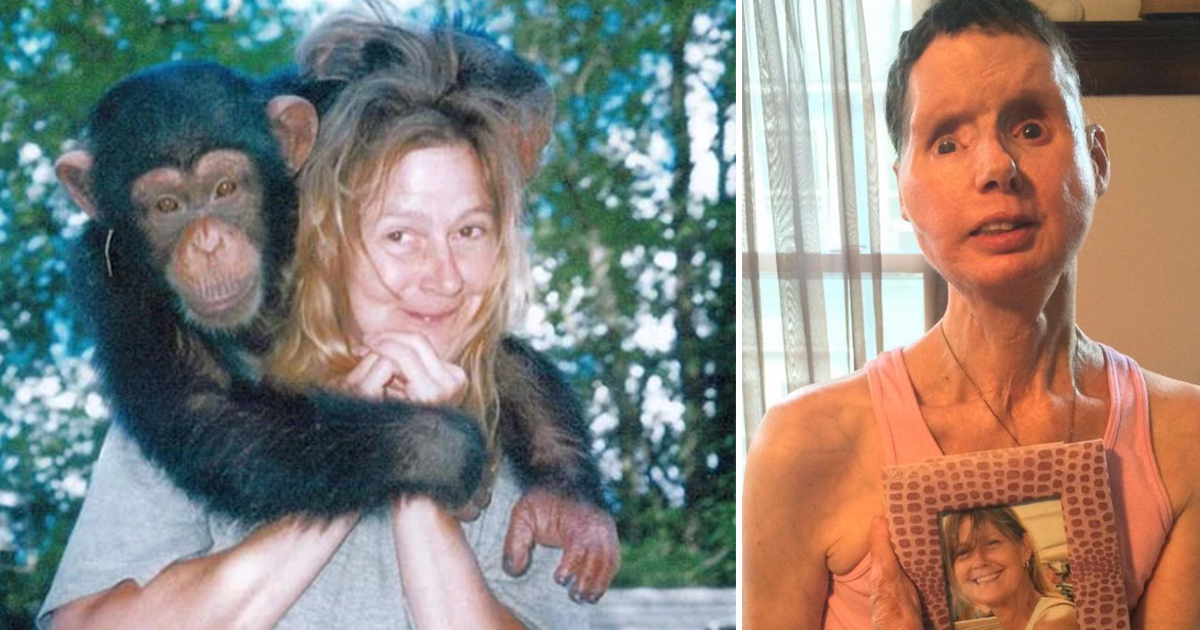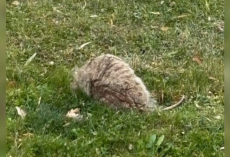Charla Nash never asked for attention. She wasn’t famous. She was simply a kind, loyal woman who answered a friend’s call for help. But one horrific moment in 2009 would catapult her into the national spotlight — and leave behind a story that would forever redefine the conversation around exotic pet ownership.
It began with a phone call from Sandra Herold, Charla’s longtime friend. Sandra was distraught: her pet chimpanzee, Travis, had taken her car keys and escaped her home in Stamford, Connecticut. Charla, always dependable, rushed over without hesitation.
She couldn’t have known she was walking into one of the most devastating animal attacks in American history.
The Attack
As Charla approached the 200-pound chimpanzee — holding a stuffed Elmo toy, one of his favorites — Travis suddenly turned on her.
In a terrifying burst of violence, Travis mauled Charla. He tore off her hands, nose, lips, and eyelids.
Sandra tried desperately to stop the attack, hitting Travis with a shovel and stabbing him with a knife. She later recalled the pain of the moment: “It was like putting a knife in myself.”
When emergency responders arrived, they found Charla lying motionless in the driveway.

But the nightmare wasn’t over. Travis charged a police cruiser, ripped off the side mirror, and attempted to open the locked door before being shot and retreating to the house, where he died.
“It was like Jurassic Park,” said Officer Frank Chiafari, who had to shoot the chimp to protect others.
Travis: The Chimp Raised Like a Child
Travis wasn’t just a pet. He had been part of Sandra’s family since infancy — bottle-fed, dressed, and treated like a child after she lost her daughter and husband. He drank wine from a glass, brushed his teeth, and rode in tow trucks.

But despite his human-like behavior, Travis was still a wild animal, with strength estimated at five times that of a human.
Charla had known him. She’d worked for Sandra’s business. But that day, she looked different — new hairstyle, unfamiliar car. It may have triggered confusion or fear in the already unpredictable chimp, possibly worsened by Lyme disease, which can cause neuropsychiatric symptoms.
A Fight for Survival
Charla was rushed to the hospital in critical condition. She was placed in a medically induced coma and underwent over seven hours of surgery. The damage was beyond comprehension. Doctors had never seen injuries this extensive on a living patient.
She lost her face, her hands, and her eyesight. Her body bore not only the physical trauma but remnants of the attack — chimp hair and teeth embedded in shattered bones.
Hospital staff were so traumatized that they required grief counseling.
The Woman Behind the Headlines
Despite everything, Charla never gave up. In 2009, she bravely appeared on The Oprah Winfrey Show, revealing her face to the world for the first time. “I want to get healthy,” she said quietly. “I don’t want to wake up with nightmares.”
In 2011, she underwent a groundbreaking full face transplant in Boston. The 20-hour surgery marked a new chapter in her life — one defined not by tragedy, but resilience.
“I’ve always known I was strong,” Charla said later. “If I couldn’t do something, I took a breath and tried again.”
Using Her Voice
Rather than disappear from public view, Charla used her voice to advocate for change. She warned against the dangers of exotic pet ownership, calling for stricter laws. “These animals are very dangerous. They don’t belong in people’s homes,” she urged.
Her efforts inspired renewed support for the Captive Primate Safety Act, and raised national awareness about the risks of humanizing wild animals.

She also sought justice, attempting to sue the state of Connecticut and Sandra Herold’s estate. Though the state claim was denied, she eventually reached a $4 million settlement from Herold’s estate in 2012.
Sandra passed away in 2010, just 15 months after the attack, her health shattered by years of grief and loss.
A Legacy That Won’t Be Forgotten
The trauma of that day also haunted Officer Chiafari, who suffered post-traumatic stress and helped push for legislation supporting first responders who endure psychological injury.

Charla Nash’s story is tragic beyond words — but it is also one of extraordinary courage.
She became the face of survival, of advocacy, and of what happens when compassion collides with danger. Her suffering sparked real conversations and tangible action to protect others from similar fate.
Her message is clear: wild animals are not pets. And no one should ever endure what she did.











